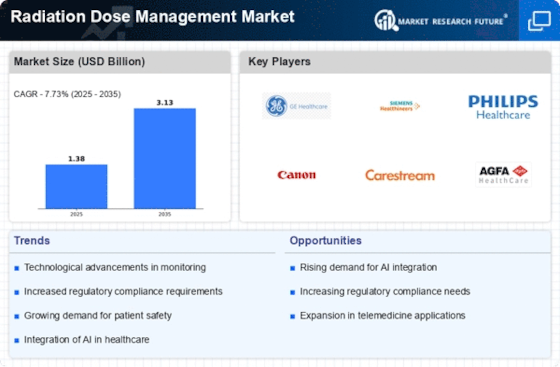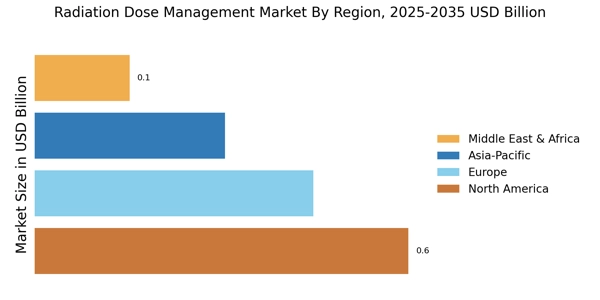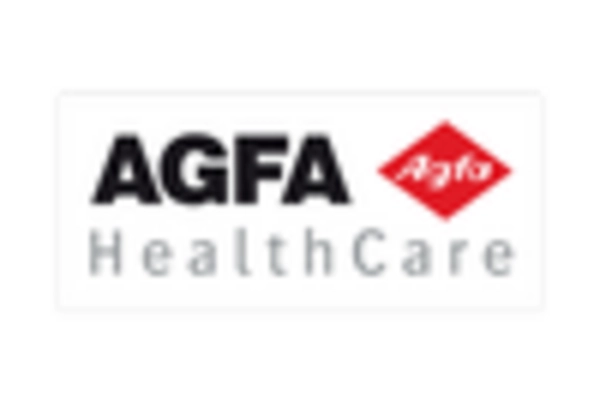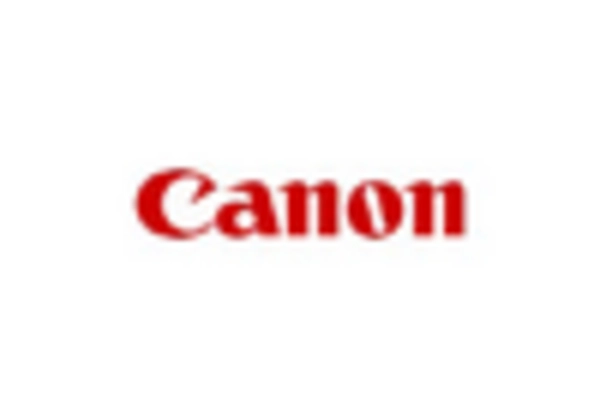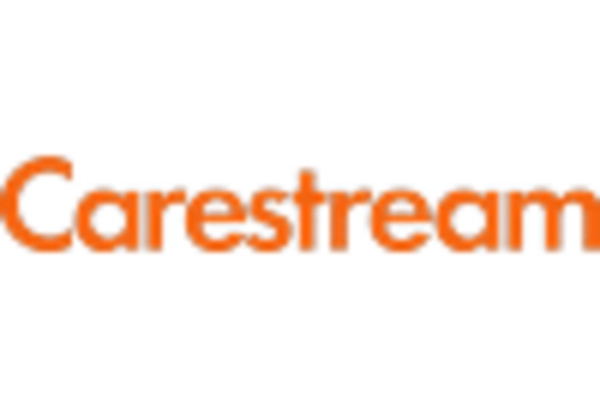Collaboration Among Stakeholders
Collaboration among various stakeholders in the healthcare sector is emerging as a key driver for the Radiation Dose Management Market. Partnerships between technology providers, healthcare institutions, and regulatory bodies are fostering the development of innovative solutions aimed at improving radiation safety. These collaborations often result in the sharing of best practices and resources, which can enhance the effectiveness of dose management strategies. Additionally, joint initiatives to educate healthcare professionals about radiation safety are likely to contribute to the overall growth of the market. As these collaborative efforts continue to expand, they may play a pivotal role in shaping the future landscape of radiation dose management.
Regulatory Compliance and Standards
The Radiation Dose Management Market is heavily influenced by the need for regulatory compliance and adherence to established standards. Various health authorities and organizations are implementing stringent regulations to ensure patient safety during diagnostic and therapeutic procedures involving radiation. Compliance with these regulations necessitates the adoption of effective dose management systems. For instance, the International Atomic Energy Agency has set guidelines that healthcare facilities must follow, which has led to an increased demand for radiation dose management solutions. This regulatory landscape is likely to drive market growth as facilities seek to avoid penalties and enhance their operational efficiency.
Rising Awareness of Radiation Risks
There is a growing awareness regarding the risks associated with radiation exposure, which is significantly influencing the Radiation Dose Management Market. Healthcare professionals and patients alike are becoming more informed about the potential health implications of excessive radiation. This heightened awareness is prompting healthcare facilities to adopt more stringent dose management protocols. As a result, the demand for radiation dose management solutions is expected to rise, with a notable increase in the implementation of dose tracking systems. Market analysts suggest that this trend could lead to a substantial increase in the adoption of advanced dose management technologies, thereby enhancing patient safety and care.
Technological Innovations in Radiation Dose Management
The Radiation Dose Management Market is experiencing a surge in technological innovations that enhance dose monitoring and management. Advanced software solutions and hardware devices are being developed to provide real-time data on radiation exposure. For instance, the integration of artificial intelligence and machine learning algorithms into dose management systems allows for predictive analytics, which can potentially reduce unnecessary exposure. According to recent estimates, the market for radiation dose management technologies is projected to grow at a compound annual growth rate of approximately 8% over the next five years. This growth is driven by the increasing demand for precise and efficient radiation dose tracking in medical imaging and therapeutic procedures.
Integration of Radiation Dose Management in Healthcare Systems
The integration of radiation dose management into existing healthcare systems is becoming increasingly prevalent, thereby impacting the Radiation Dose Management Market. Healthcare providers are recognizing the importance of incorporating dose management solutions into their workflows to optimize patient care. This integration facilitates better communication among healthcare professionals and enhances the overall efficiency of radiation use. Furthermore, the trend towards electronic health records (EHR) is enabling seamless data sharing, which is crucial for effective dose management. As healthcare systems continue to evolve, the demand for integrated radiation dose management solutions is expected to grow, potentially leading to improved patient outcomes.


